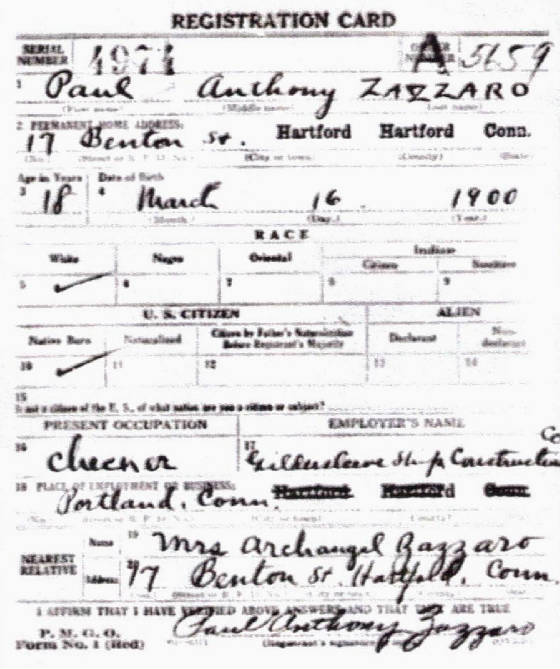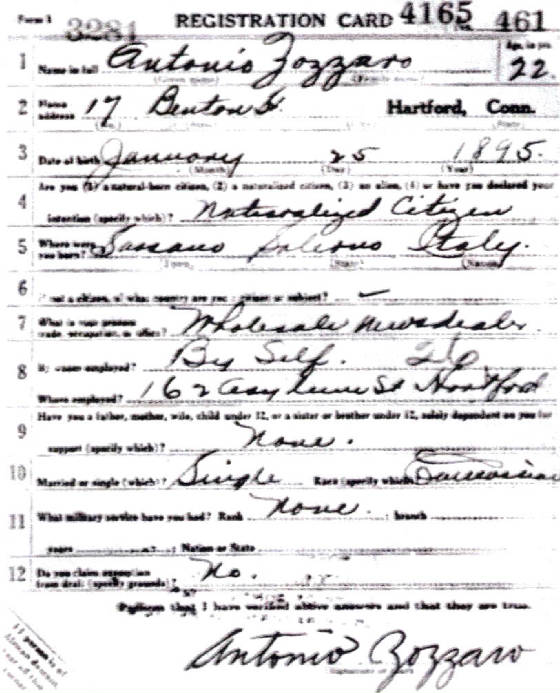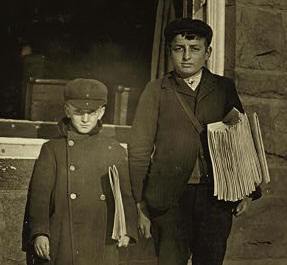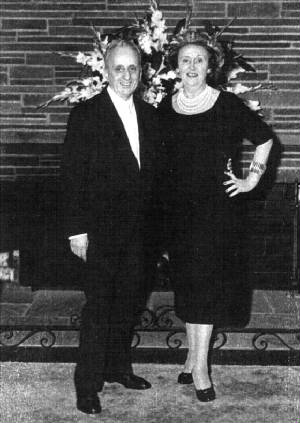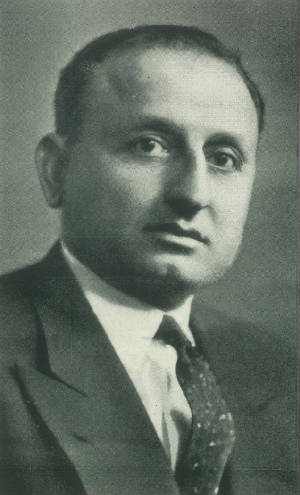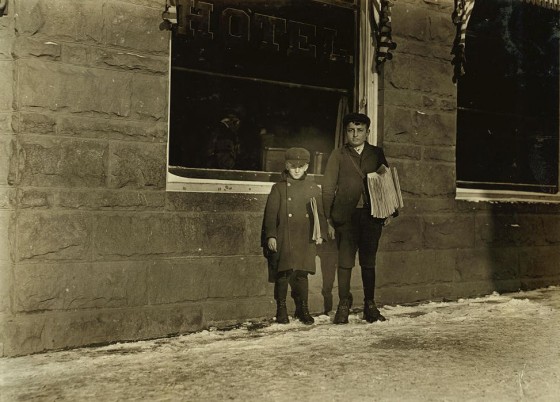
Lewis Hine caption: 8 A.M. A cold and windy day. Small boy, Paul Zozzaro, 9 years old, begins at 7 A.M. daily. Then goes to school. Sells after school until 6 P.M. and later. Older brother, Tony, gets up at 5 every morning and sells before school. Then after school again. Location: Hartford, Connecticut, March 1909.
“I live in an apartment building that is above where the Allyn House Hotel used to be, at the corner of Asylum and Trumbull Street. It’s directly across the street from the building that my father bought in the 1930s.” -Paul Zazzaro Jr., son of Paul Zazzaro
“To this day, and I’m in my sixties, children of the people who knew my father say to me that they heard stories about him bringing food to people, and how he gave so-and-so a job. I’m honored by that.” -Arcangela Claffey, daughter of Anthony Zazzaro
Mary: What’d you wish, George?
George: Well, not just one wish. A whole hatful, Mary. I know what I’m going to do tomorrow and the next day and the next year and the year after that. I’m shaking the dust of this crummy little town off my feet and I’m going to see the world. Italy, Greece, the Parthenon, the Colosseum. Then I’m coming back here and go to college and see what they know . . . and then I’m going to build things. I’m gonna build air fields. I’m gonna build skyscrapers a hundred stories high. I’m gonna build bridges a mile long…-from the movie It’s a Wonderful Life, starring Jimmy Stewart and Donna Reed
**************************
Other than the caption, we know nothing about Paul and Tony. Who were their parents, and were they both living then? What kind of a home were the boys living in? Were they born in the US? And what street were they standing on? Lewis Hine was in a hurry, and he had very little time to jot down information in the pocket notebook he typically carried. He took 35 photographs of newsboys and newsgirls in Hartford from about Thursday, March 4, to Sunday, March 7. The next day, he was in New Haven doing the same thing, and then he headed for Bridgeport. He also testified about child labor at a state legislative hearing.
As I was to learn a few weeks after I started my research, Anthony Paul Zazzaro was born in Italy on January 25, 1896. Paul Anthony Zazzaro was born in Hartford on March 16, 1900, and was about to celebrate his ninth birthday. Their father, Giovanni (John) Zazzaro, a native of Sassano, Italy, landed at Ellis Island on September 15, 1897, and went to Bayonne, New Jersey. In 1899, he went back to Italy and brought back his wife Arcangela (Rubino) and their two children, Antonia and Anthony. They settled in Hartford, where he got a job sweeping the streets. He was still a laborer for the City of Hartford when this picture was taken. The Zazzaros had married in 1892. Neither one of them could read or write. The family lived at 25 Mechanic Street, in a neighborhood of crowded tenements occupied mostly by Jewish and Italian immigrants.
As Hine described, Paul and Tony got up very early most mornings, picked up a bundle of newspapers and stood on street corners, until they went to school. After school, they were back on those corners with more newspapers. On this cold March morning, as they were standing in front of an unnamed hotel, they might have wondered if their meager lives would ever change. As we will find out, they most certainly did, more than they ever would have imagined.
I was unable to determine where the boys were standing. Since the picture was taken at 8:00 in the morning, the shadows indicate that Hine was facing west, and the boys were facing east. Hine took all his newsboy photos in the downtown area. According to the Hartford directories, there were seven hotels located downtown in 1909. One of them was the Allyn House, at the corner of Asylum Street and Trumbull Street. I found a 1908 photograph of it, but the windows and façade did not closely resemble those of the hotel in this picture. It was torn down in 1960. I did not find a picture of any of the other hotels. All of those hotel buildings have since been demolished, or their street-level facades have been remodeled beyond recognition. So the location of the photograph remains a mystery.
In 1913, the family moved several blocks away to 147 Front Street. The Mechanic Street and Front Street area has recently been redeveloped into a project named Adriaen’s Landing, which includes the Connecticut Convention Center, the Connecticut Science Center, and a large hotel. In 1916, the family moved to 17 Benton Street, a multi-family house built in 1900. It still stands.
Anthony apparently quit school early, but Paul continued and may have graduated. From 1916 to 1920, Paul worked for the Colt firearms company in Hartford, the Gildersleeve Ship Building Company, based in nearby Portland (Conn), and as a streetcar conductor. Anthony was a wholesale news dealer, secretary-treasurer for Hartford Bottling Works, and the owner of the small brewery. Their father died on June 17, 1918. In 1920, all seven of the children, except Antonia, were living with their mother at 17 Benton Street. Mrs. Zazzaro died in the house in 1955.
By 1930, Anthony was renting a home at 265 Washington Street. His brother Paul and three other siblings also lived there. Anthony owned a parking garage, and Paul was the street commissioner for the City of Hartford. At this point, the fortunes of these two former newsboys took a leap, as we will learn in interviews with Paul’s son and Anthony’s daughter.
Edited interview with Paul Zazzaro Jr. (PZ), son of Paul Zazzaro. Conducted by Joe Manning (JM) on April 26, 2011. Transcribed by Celeste Ramsey and edited by Manning.
JM: What did you think of the picture of your father?
PZ: Everybody in my family loved it. It coincided with the genealogy work my daughter is doing. She’s been asking a lot of questions. And so this picture came along at the right time, because we don’t have pictures from that period. My daughter observed in the picture that my father has only a few newspapers, and his brother Tony has the bulk of them. And she also said that it looks like my father is wearing a hand-me-down coat, because it doesn’t fit him. He never told me anything about being a newsboy. But back in those days, being a newsboy at the age of nine or ten was not unusual. Why would this be considered exploitation of children? I assume that this was what Lewis Hine was pointing out.
JM: That is an issue that comes up all the time with this. People will say, ‘My kid delivered papers.’ But these kids weren’t delivering papers, they were selling them. They worked a lot of hours. Sometimes they would be up until midnight standing on street corners and selling. They were often out as early as four o’clock in the morning. They had to buy the papers first, and they couldn’t get a refund for what they didn’t sell. So if they didn’t sell all of them, they lost money. They fought for territory, sometimes with their fists. They were exploited by people on the street because they had money. A lot of them didn’t know how to make change very well, at least until they got some experience. They were often lured into bars and pool halls. They understood that sometimes the best people they could sell newspapers to were the drunks.
One of the major tricks that newsboys used was having one boy go into a bar with one newspaper late at night and say to a customer, ‘If you by this one newspaper I have left, I can go home.’ And then he would leave, run around the corner, and another boy would give him another newspaper, and he would go back in and try the same trick on another customer. Your father and his brother were probably downtown when they were photographed. They might have been on Main Street or Asylum Street or Trumbull Street, which would have been the best places to sell papers. Hine took most of his Hartford photographs in that area.
PZ: That’s very interesting. I live in an apartment building that is above where the Allyn House Hotel used to be, at the corner of Asylum and Trumbull Street. It’s directly across the street from the building that my father bought in the 1930s. It had been a bank, which failed during the Depression. He turned the lower floor into a very popular restaurant. It was called the Capitol Grill. He also owned a parking garage on the spot where my apartment building stands. He owned the business, but leased the lot. The city finally bought it, tore it down, and built the Civic Center, which was eventually torn down and is now the XL Center. I can remember being with him one day, right after he had sold the business. It had run into some difficult times, because they just couldn’t get people to live downtown anymore.
JM: When did your grandparents come over from Italy?
PZ: My grandfather, Giovanni Zazzaro, came over through Ellis Island twice. The first time was about 1896 (1897). He was already married and had two children. He went to New Jersey. The second time, he came to Connecticut. Giovanni died in 1918. All of a sudden his children, including my father, had to make decisions about what to do. So the decision was made that some of the older brothers would go to work and help to get their younger brother Michael through school and college, and that’s the way it worked out. Michael went on to become a dentist.
The family arrived in the US slightly earlier than most of the Italian immigrants, so they became the political leaders. When the Italian vote became a big issue in the 20s and 30s, Tony became one of the Democratic Party bosses who delivered the Italian vote. He also owned a brewery.
In 1929, my father was working for Cities Service. They were opening up gas stations all over. He was trying to find new locations for the stations. Then the crash came, and he lost the job. But Tony had connections because he was in politics, so he got my father a job as the street commissioner. He had that job for a while, and then he got tired of being, you know, under Tony, in the sense that he owed him for the job and everything. He wasn’t married yet, so he didn’t have to support a family. So when the bank on Trumbull Street closed, he leased the first floor and opened up the Capitol Grill. He couldn’t even boil an egg, but it was a big success. He told me once, when I was just a kid: ‘Don’t ever go in the restaurant business. Don’t ever go into business where the people who work for you know more about how the business is run than you do. They will hold you up for ransom.’ He had that problem with chefs all the time.
JM: So what would he do, just greet everybody when they came in?
PZ: That’s right. He’d go table to table. He was very popular among the politicians and bankers. That’s how he got to know a lot of people. That’s how he ended up buying real estate. He would be chatting and someone would say, ‘Hey, there’s a piece of property I know about.’ He ended up buying the building he was in. And then he bought property across the street.
JM: He probably paid cash because a lot of the banks were closed.
PZ: With my father, everything was cash.
JM: When did he get married?
PZ: In 1939. He was 39. My mother, Ann, owned the house they lived in when they got married, because she had been married before to a man named Pierce. He died in 1932. They had four children. I was born in 1941.
JM: So when you grew up, were the Pierce kids in the household with you?
PZ: Only for a short time, because they were so much older.
JM: Did you grow up in that house?
PZ: Yes, but they sold it and bought a house in West Hartford in 1959. They still had that Depression mentality. My father paid cash for it. He said, ‘I don’t ever want to be in a situation where they take the house.’
JM: Did he still own the Capital Grill when he died?
PZ: He sold it in 1973, three years before he died. He had a bad heart. It runs in the family. Tony died of a heart attack in 1945, when he was only 49. And their father did, too. My mother died in 1975. And then my father was really was lost, with no place to go.
JM: So what did he do with himself?
PZ: He would visit everybody. That’s the good thing about having family around. And in the summer, he had a house in Old Lyme, down by the shore. And he played cards with his buddies. He died of a heart attack in 1976. He was staying at my sister’s house. She went out to do some shopping, and he was there watching television. He called the ambulance. He opened the door for the ambulance guys, but they couldn’t save him.
JM: Did you go to public school?
PZ: I went to Catholic grammar school, then to a public school, Bulkeley High, and then to college.
JM: Where did you go to college?
PZ: Georgetown.
JM: Did you get a scholarship, or did your parents pay your way?
PZ: My parents paid my way. When I graduated, I went to Trinity College (Hartford) to get a master’s in economics, but then I got a job offer in New York, so I withdrew. That was in 1964. Then I moved back to Connecticut and lived in Essex, where I bought some property.
JM: So why do you live in Hartford now?
PZ: When I got divorced, I had an office in Stratford, Connecticut, and another office in Brattleboro, Vermont. Hartford is about halfway in between. And I have a lot of relatives in the Hartford area.
JM: What do you do in Brattleboro?
PZ: I have a company up there. We create educational courses for company training programs.
JM: When you were growing up, was your father too busy with the restaurant to spend much time with you?
PZ: No, we spent time together. He came home about seven o’clock every evening. My mother didn’t eat with us. She waited for him. They were much older than the average parents, so there weren’t those piggyback rides and that kind of thing. It was a little more formal. I remember a lot of storytelling. He would describe a movie that he saw, the dialogue and everything. We loved it.
He was fun to be with. And the reason he was popular was because he seemed to take an interest in everyone. I learned a lot from him. There were a lot of people who didn’t do well coming out of the poor section. He never forgot them. He’d hire these people. I used to have people come up to me who would say things like: ‘I was down on my luck, and your father hired me,’ and, ‘I worked as an attendant in his parking lot, and he always sent a turkey over at Christmas.’ It was fun to go places with him, because he knew everybody.
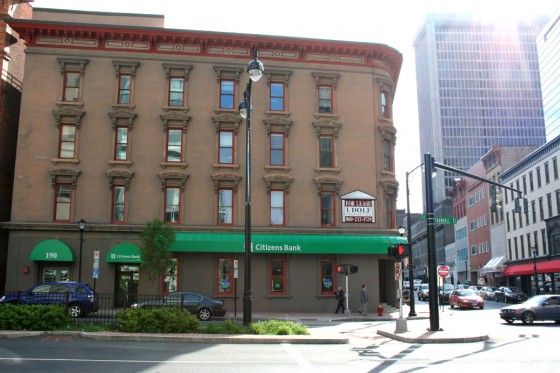
Excerpts from my interview with Arcangela Claffey, daughter of Anthony Zazzaro. Interview conducted on November 14, 2011.
“It was mind boggling to see the photograph, because I heard that he had sold newspapers on the street corners, and that he started at a very early age in order to help support the family. When I saw the picture, it was like, ‘Oh my God, that’s my father.’ I was nine months old when he died, and my brother was three.”
“It is ironic that ‘Tony Z,’ as he was called, would open his first of many parking lots right in downtown Hartford, where he and his brother Paul had sold newspapers. That one eventually became the first with pigeon hole parking in the city. By that time, his brother Frank had taken over the business.”
“Not only did he sell newspapers, but he sold peanuts at the ballpark. He did that with his friend Bill Savitt (later the legendary and colorful Hartford jewelry store owner). There were a lot of immigrant children who did things like that. They only went to school for a few years, because they had to help support the family. My father didn’t go any farther than the fifth or sixth grade. The Aetna Brewing Company located on Windsor Street in Hartford was established by him. The beer was considered to be of very good quality.”
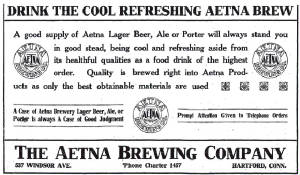
“He was very ethnic oriented, from the standpoint that he wanted to help Italian Americans in Hartford, and he did the best he could to reach out to them. As he progressed in his business and came up with some capital, and people were looking for help to start a business, he would, over a handshake, lend them money. A lot of businesses started because of him.”
“There a popular Italian food store in the South End called D & D Market. It’s been there for over 75 years. The son of the original owner told me many times, ‘If it wasn’t for your father, we would never have had this business.’ His father was short on money, and my father thought the market had potential, so he brought him to the bank and helped him get a loan. The grandson runs it now.”
“There are only two instances I remember where my father had a problem with people he lent money to. My mother, Theresa, told me that after my father died, somebody knocked at the door. He told my mother that my father had loaned him some money, and he wanted to express his thanks. My mother said, ‘I expect you to pay it back. I don’t care if it’s five dollars a week.’ And this gentleman paid it back.”
“There was a man — he later became a big political figure in Hartford — who did not pay his debt in kind. Instead, he would come each Christmas and bring pastries. And my mother would say, ‘What are these for? We don’t need them.'”
“Two of my father’s sidekicks were John Bailey and Abe Ribicoff. When he started out, Abe was carrying my father’s briefcase. My father was the one who pushed him to run for political office.” (Abraham Ribicoff became a US senator and a governor of Connecticut, and John Bailey was chairman of the Democratic National Committee in the 1960s.)
“My mother told my brother and me that some people accused my father of being involved in some questionable political deals, but she said that he was always trying to help people. He was a great contributor to civic and personal causes, and he was recognized through the years by the Italian American Society and other groups. He also served as Alderman for the City of Hartford. He took great pride in his family, his heritage, his church, his city, and his friends. When he died at the age of 49, his funeral Mass at St. Anthony Church in Hartford was the largest in attendance that the City of Hartford had experienced. The overflow crowd stood outside the church to honor him.”
“To this day, and I’m in my sixties, children of the people who knew my father say to me that they heard stories about him bringing food to people, and how he gave so-and-so a job. I’m honored by that. I go to political functions now, and I am introduced to people as my dad’s daughter. And as soon as they hear that, they start telling me stories about how he helped them.”
“My parents lived in the South End of Hartford, near Goodwin Park (247 Fairfield Avenue). My father came home one day and he says to my mother: ‘I just bought a summer home and I want to take you to see it.’ And she’s figuring it’s on Cape Cod, because he would bring her there for a few weeks in the summer. She starts getting together a few things to pack, and my dad says, ‘Oh, no, you don’t have to do that. We’re not going that far.’ So he took her to the house, and it was in Wethersfield, only about three miles away.”
“He didn’t like to go too far from his roots. If they went away, it would be to Florida. They would go with another couple. But he would have to make phone contacts several times every day, so he could find out what was going on in the city. He was always making deals.”
“My mother used to tell me that there were many Sunday mornings when they would go to Mass together, and then he’d say to my mom, ‘I’ll take you home, and then I’ll bring home some guys, and we’ll have breakfast.’ There would be anywhere for 12 to 14 people that she had to serve. They would sit around at the dining room table.”
“There’s a beautiful oil painting of my father that was based on a black and white snapshot of him. His brother Frank sat with the artist so he could get the coloring of the face and the sharper features. In those days, people sometimes had humongous paintings in their house. So when you walked in the front door of my house, you saw this huge oil painting of my father. My mother loved the painting because his eyes would seem to follow her. When I was growing up, she would say to me, ‘Your father is watching you.'”
“It is wonderful to still remember and reflect on this individual, a little immigrant boy arriving in this country with his mother and older sister to join their father who had arrived earlier to find work and pave the way for their passage. It still awes me that in his short life he was able to do so much for and with people to make their lives better.”
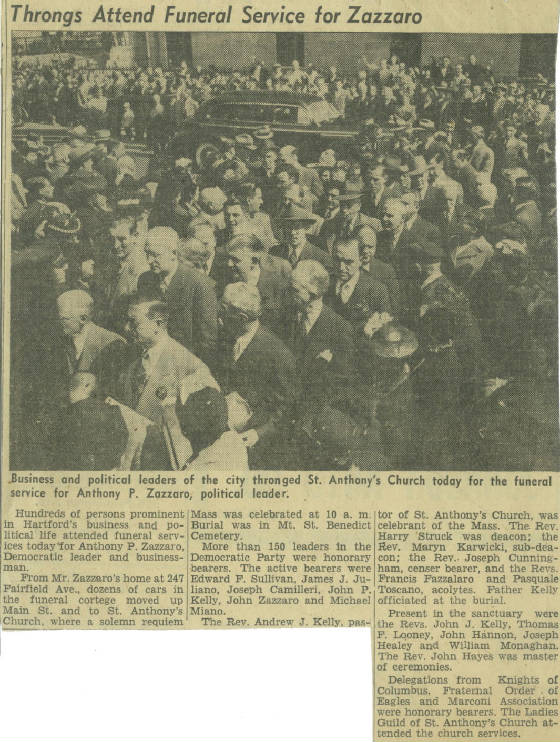
Paul Zazzaro: 1900 – 1976
Anthony Zazzaro: 1896 – 1945
“Paul Zazzaro is as generous with his money as he is businesslike in running his Capitol Grill on Asylum St. His gifts are always anonymous.” -Chris Wall, Bridgeport Sunday Herald, April 9, 1950
“The sun never set on a day when Tony had not done a favor for someone. Success for him was pleasing only in the sense that it enabled him to do things for others that he might otherwise be unable to do.” -Thomas Spellacy, former mayor of Hartford, at the unveiling of a life-size oil painting of Anthony Zazzaro at the Italian-American Home in 1945
*Story published in 2012.
